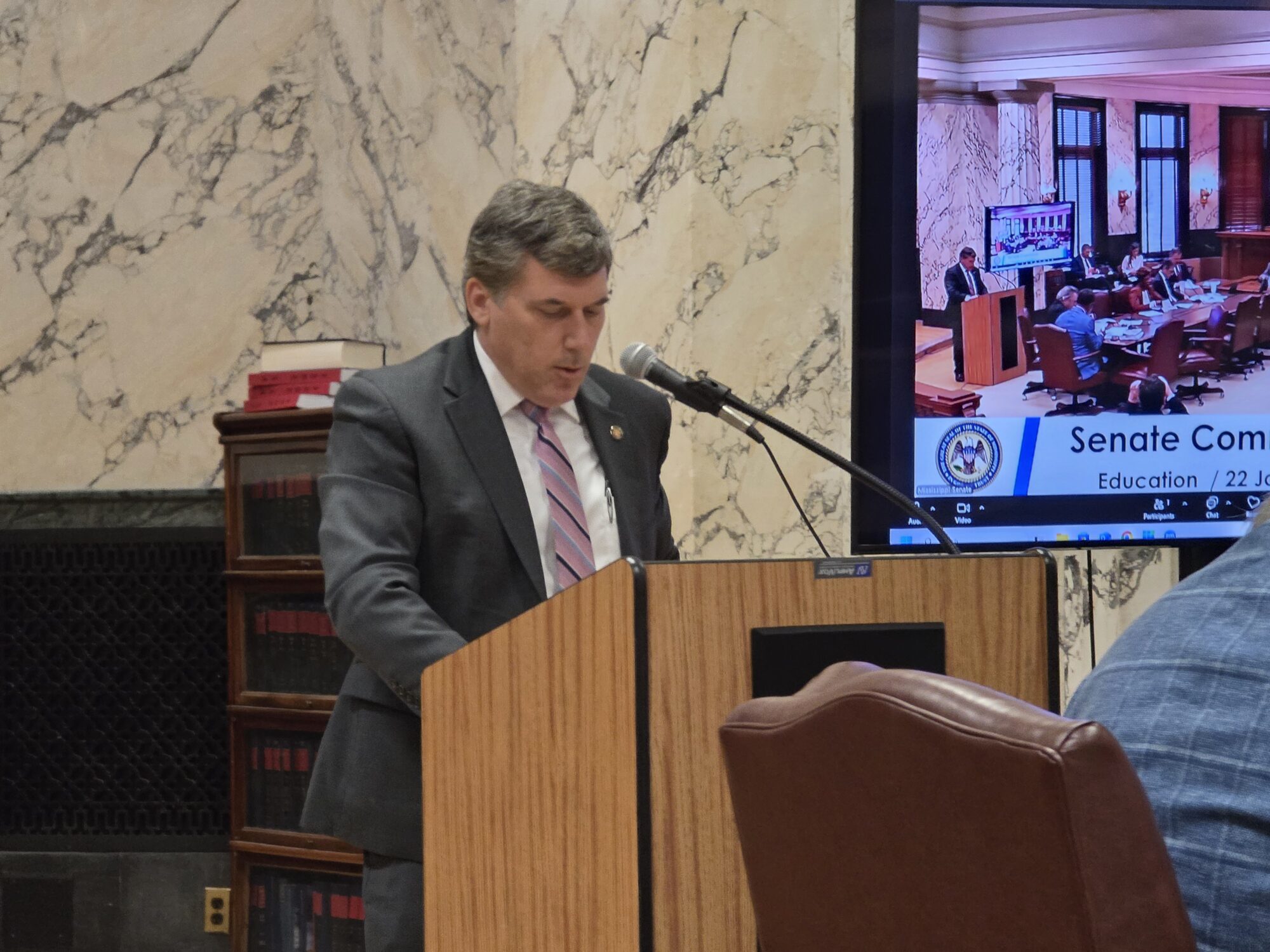DOCN 000017416
DOCK 2006-00652
AUTH Phil Carter
DATE 20070129
RQNM Billy Nicholson
SUBJ Elections
SBCD 71
TEXT The Honorable Billy R. Nicholson The Honorable Jeffrey C. Smith Mississippi House of Representatives Post Office Box 681 Columbus, Mississippi 39703
Re: Qualifications of Candidates (Party Loyalty)
Dear Representatives Nicholson and Smith:
Attorney General Jim Hood received your letter of request and assigned it to me for research and reply. Your letter states:
There are several members of the House of Representatives, and we are not sure about the Mississippi Senate, that have been told certification to the party primary next year (predominately Democratic) will not be certified. This is because of certain
restrictions, etc. that have been placed upon Democratic Office Holders by the State Democratic Party Executive Committee(s).
Specifically, some of us have been told 1) if we supported a Republican candidate at some point, or 2) had not supported leadership in the House of Representatives or 3) endorsed a Non-Democrat, then we could not be certified or might not be certified as
a Democratic Office Holder in the upcoming 2007 primary and general elections.
It is my understanding, additional burdens, restrictions and requirements cannot be placed upon candidates for public office in this State, without at least two things happening: 1) The changes or burdens/restrictions being approved by the Mississippi
Legislature and 2) The Justice Department preclearing any requirements.
We would ask for an opinion to be issued on this matter and feel one was issued in 2003 or 2004 by Hon. Phil Carter.
In our opinion addressed to Christopher D. Hemphill, dated January 16, 2003 we addressed a similar situation as it pertained to a county party executive committee. The opinions expressed in Hemphill regarding the authority of a county party executive
committee are also applicable to a state party executive committee.
In Hemphill we pointed out that, unlike some states, Mississippi does not have party registration, i.e., a citizen does not need to be a member of a political party in order to run or vote in that party’s primary. The primary system in Mississippi leaves
it to the people, not party officials, to determine who shall represent the party as its nominee. We enclose a copy of that opinion for your convenience.
We first state that the Mississippi Legislature has a constitutional mandate to insure fairness in how a political party determines who will be candidates in its primaries. Section 247 of the Mississippi Constitution of 1890 provides:
The Legislature shall enact laws to secure fairness in party primary elections, conventions, or other methods of naming party candidates.
Section 241 of the Mississippi Constitution of 1890 as modified by the courts determines who is eligible to vote in all elections including primaries. Any person who meets those requirements is free to decide in which party’s primary he or she wishes to
participate.
Insofar as the qualification of candidates is concerned, Mississippi Code Annotated Section 23-15-299, in accordance with Section 247 of the Mississippi Constitution, is very specific as to what a party executive committee is to consider in determining a
candidate’s qualifications and there is nothing in that statute that could be construed to authorize a party executive committee to disqualify an individual based on generally perceived “party disloyalty.” Section 23-15-299 (7) provides in part:
Upon receipt of the proper fee and all necessary information, the proper executive committee shall then determine whether each candidate is a qualified elector of the state, state district, county or county district which they seek to serve, and whether
each candidate meets all other qualifications to hold the office he is seeking or presents absolute proof that he will, subject to no contingencies, meet all qualifications on or before the date of the general or special election at which he could be
elected to office. The committee also shall determine whether any candidate has been convicted of any felony in a court of this state, or has been convicted on or after December 8, 1992, of any offense in another state which is a felony under the laws of
this state, or has been convicted of any felony in a federal court on or after December 8, 1992. *** If the proper executive committee finds that a candidate either (a) is not a qualified elector, (b) does not meet all qualifications to hold the office he
seeks and fails to provide absolute proof, subject to no contingencies, that he will meet the qualifications on or before the date of the general or special election at which he could be elected, or (c) has been convicted of a felony as described in this
subsection, and not pardoned, then the name of such candidate shall not be placed upon the ballot.
*** Once the appropriate executive committee determines that a particular candidate meets the eligibility requirements of Section 23-15-299, the law requires that his or her name must be placed on the ballot. Any finding by such committee that a
candidate, at some point in time, supported a candidate of a different party, has not supported the leadership in the House of Representatives or endorsed a candidate who is of a different party or an independent would not authorize said committee to
refuse to place that candidate’s name on the ballot. Any such action by a state executive committee, even pursuant to a provision in its party constitution or a party rule or regulation, would be contrary to state law and the constitution.
We note that there was a time when individuals could be prohibited from participation in party primaries if their prior actions indicated that they were not in accord with the principles of the party holding the primary. Section 3129, Mississippi Code of
1942 provided in part that:
No person shall be eligible to participate in any primary election unless he *** has been in accord with the party holding such primary within the two preceding years, and is in accord with the statement of the principles of the party holding such
primary, which principles shall have been declared by the state convention of the party holding the primary, and unless he is not excluded from such primary by any regulation of the state executive committee of the party holding such primary; provided,
however, that nothing herein is intended or shall ever be understood as applying to elections of President or Vice- President of the United States, wherein votes may be cast entirely without regard to party lines and within any penalty for so doing.
The above quoted statutory provisions were repealed by Chapter 506, Laws of 1970.
While we have said that a party may not disqualify a potential candidate for past actions that may be perceived as being disloyal to the party, that is not to say that a political party must place the names of individuals who do not intend to support the
nominees of the party on its primary election ballot. Section 23-15-575 (the successor statute to Section 3129 of the Miss. Code of 1942, quoted above) still provides:
No person shall be eligible to participate in any primary election unless he intends to support the nominations made in the primary in which he participates.
Therefore, it is our opinion that a political party’s executive committee may require potential candidates to pledge prospectively that they intend to support the candidates that are to be nominated in the primary in which those potential candidates seek
to participate.
As noted in your letter, a change in the law to authorize political party executive committees to disqualify candidates based on real or perceived past party disloyalty would have to be enacted by the Mississippi Legislature and pre-cleared by the U.S.
Department of Justice pursuant to the 1965 Voting Rights Act before it could be lawfully instituted.
Sincerely,
JIM HOOD, ATTORNEY GENERAL
` By: Phil Carter Special Assistant Attorney General
Enclosure
AG’s Opinion
1/29/7







